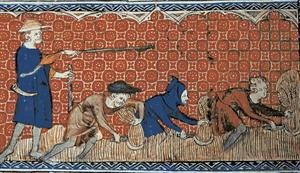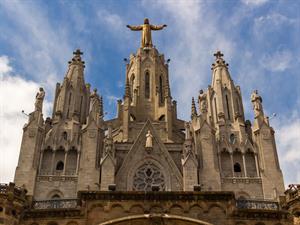PDF chapter test TRY NOW
The Rise of Feudal System in Europe:
The rise of various religions across the world also witnessed the emergence of a new Socio-Political structure under the name of “Feudalism”, which was a relationship maintained between the ruler and the governed.
This new structure of governance flourished in the regions of Western Europe. Feudalism served as the foundation of Democracy.
Feudalism: The word “Feudal” is derived from the root word “Fief” which was used to denote a piece of land in Medieval Europe.
The person holding the land is known as the “Lord”, and the person who receives the Fief from the lord was termed as the “Vassal”. The Vassal receiving the land from the lord is entitled to perform duties ordered by the Lord.

Feudalism
The System of Feudalism functioned under the tenets of Obligation and Rights. It also maintained a structured hierarchy that ensured the system's success and spread across the European countries during later periods.

Feudalism functioned under the basic relationship between the lord and his Vassals known as the “Vassalage”.
The King and the Nobles enjoyed complete pleasure while producing food, maintaining the lands, and military functions were done by the Peasants and Slaves.
The Church in Middle Ages:
The Church was also part of the Feudal structure, which had a certain degree of independence from the King. It was one of the Universal institutions to function during the Middle Ages of Europe.

The Church
The Church was headed by the “Pope” who was the supreme authority to decide the matters of the Church. Under Pope, there were other heads to advise the authority about the course of the Church. They are:
Bishop: Headed the institutions at the district level.
Abbott: Chief Priest among the Christians who was next under the Pope.
Clergy: A group of people who perform pastoral and sacramental functions in the Church. The Priesthood increased the power of the Clergy people.
The European rulers patronised the pope and asked his advice in internal affairs. The papacy started to dictate terms in the rule of Kings which was seen as an intrusion by the emperor and made him keep the Pope out of his governance structure.
Punishments given by the Churches for unruly behaviour and treason were of the highest order, like “Excommunication” which means the stripping of a Christian's rights.
Reference:
Feudalism -wikimedia commons
